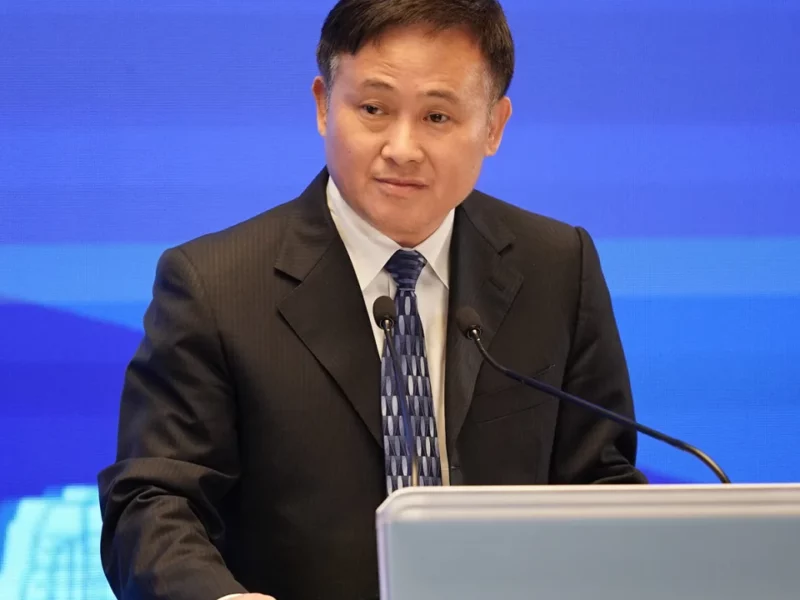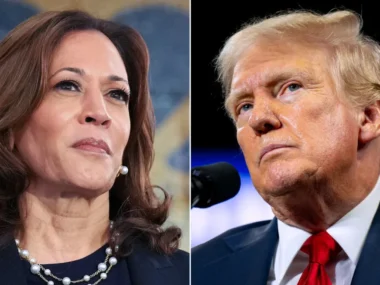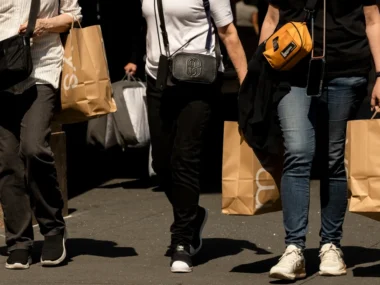China, the world’s second-largest economy, is currently undergoing a significant transformation and is actively seeking new sources of economic growth, as stated by Pan Gongsheng, the governor of the People’s Bank of China. Speaking at a conference in Hong Kong, he emphasized that China is in the midst of a transition in its economic model, placing a greater emphasis on achieving high-quality and sustainable growth.
This shift entails moving away from the traditional drivers of growth, which include manufacturing and real estate, and pivoting toward a more modern economic model that prioritizes consumption and services as key drivers of its economic development.
Governor Pan Gongsheng also emphasized that China is on track to achieve its growth target of “around 5%” for the current year. He expressed confidence in China’s economic resilience and projected that the country would continue to experience robust and sustainable growth in 2024 and beyond.
These comments are particularly relevant as China grapples with an extended economic downturn in its expansive real estate sector. The country’s economic recovery from the post-pandemic period lost momentum in the second quarter of this year, with GDP expanding at a rate of 6.3% year-on-year, which was below expectations. This slowdown occurred when several cities were still dealing with lockdowns and other pandemic-related challenges.

On June 30, 2023, workers were seen operating on an assembly line at a factory in Fuyang, located in the eastern Anhui province of China. They were engaged in the production of speakers.
China’s economic growth gained momentum in the third quarter, with a year-on-year expansion of 4.9%, exceeding market expectations. Governor Pan noted that both consumption and industrial production demonstrated “good growth” in the last month.
However, the real estate sector in China continues to face challenges, including slow sales and declining home prices. This sector had experienced significant growth for three decades, driven by factors like population growth and rapid urbanization, and it used to contribute up to 30% of China’s GDP.
The real estate sector encountered difficulties in 2020 when regulatory authorities began clamping down on excessive borrowing by developers, leading to a crisis in the industry.
The consequences of the real estate sector’s challenges have led to defaults on debts by major Chinese developers like Evergrande and Country Garden. Furthermore, the financial repercussions are extending into the $2.9 trillion shadow banking industry.
Governor Pan aimed to alleviate the concerns of global investors regarding the property market slowdown and associated debt risks. He commented that China’s real estate market is currently undergoing necessary adjustments and emphasized that, in the long term, these adjustments will be advantageous for China’s economic model transition.

On September 28, 2023, an aerial photograph captured a housing complex developed by the Chinese property company Evergrande in Wuhan, located in the central Hubei province of China.
Governor Pan noted that the housing market in China, which had experienced rapid growth for decades, is currently undergoing a significant transformation. While there is still robust demand in larger cities, demand has decreased in third and fourth-tier cities.
Furthermore, Pan stated that the impact of the property sector’s challenges on the overall financial system is relatively limited, indicating that the financial system is not experiencing extensive negative effects from the property market issues.
Further Assistance is Needed.
Pan has committed to maintaining an “accommodative” monetary policy to provide support for the economy, even though inflation is currently at a low point and consumer prices are expected to rise in the near future.
In a coordinated effort, the People’s Bank of China (PBOC) and seven other government departments unveiled 25 measures on Monday to reinforce financial assistance for private businesses, as part of their ongoing initiatives to stimulate economic growth.
Simultaneously, the central bank published a quarterly report on its monetary policy, outlining its dedication to ensuring ample liquidity. The report states that the PBOC aims to “facilitate the transmission of monetary policy, enhance the stability of financial support for the real economy, promote a positive economic and financial cycle, and maintain reasonable price levels.”
Throughout the year, the Chinese government has implemented various measures to bolster the economy. Just recently, the legislature approved an additional one trillion yuan ($141 billion) in sovereign bonds to fund infrastructure projects. Regulators have also introduced a series of measures to stabilize the real estate sector, including reducing mortgage rates for prospective homebuyers.











